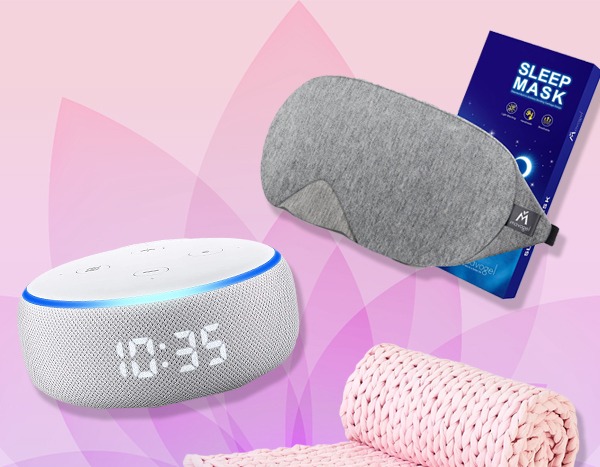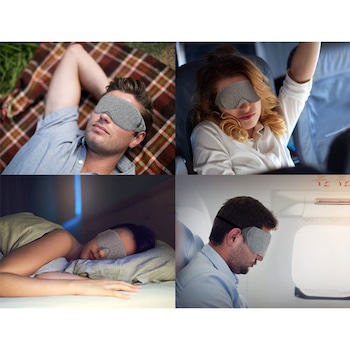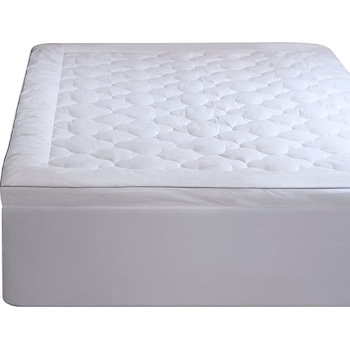Products You May Like
We love these products, and we hope you do too. E! has affiliate relationships, so we may get a small share of the revenue from your purchases. Items are sold by the retailer, not E!.
No question: we’re going through a challenging time right now. And as we all process through everything we’re dealing with, that can wreak havoc on our sleep patterns. Are you feeling it too? Fret not, ’cause we talked with two experts that can help us make the most of nap time and bed time.
“Ideally, the American Academy of Sleep recommends seven to nine hours of sleep with some people needing just six and other needing ten,” says sleep psychologist Dr. Joshua Tal. “But we’re moving away from the quantity of sleep and instead looking at the quality of sleep. If you’re getting six to seven hours of quality sleep that’s better than ten hours of interrupted sleep. So I would say don’t stress out over the number of hours, focus on the quality.”
But what if you’re struggling to get that quality sleep? Dr. Tal has some suggestions. “In terms of what you can control, you can set up bedtime routines which include turning off your phone and doing something relaxing like stretching, yoga, a bath or listening to music,” he says. “You can get aromatherapy going. When you do it enough times, it conditions your body to get ready to sleep. That’s what we want: we want a signal for your body to say it’s time to sleep.”
And there are definitely some things you want to avoid if your goal is to improve your sleep. For example? “Caffeine can take as long as 12 hours to leave your body,” says clinical psychologist Dr. Shelby Harris. “While most people think that coffee is the sole source of caffeine, it is also commonly found in soda, tea, chocolate and many over-the-counter medications as well. Even beyond caffeine, liquid intake at night often leads to more bathroom trips and sleep disruption, so people who are having trouble sleeping may want to avoid eating or drinking anything within three hours of bedtime. Alcohol in particular can help some fall asleep faster, but the sleep quality ends up being much lighter and broken throughout the night.”
Still, even with all that preparation, some of us might still be struggling with the getting to sleep part. Dr. Harris knows how to deal with that. “Get up and out of the bed after approximately 20 minutes… don’t look at the clock, just guesstimate,” she recommends. “Sit in another room, or a chair near the bed if that is not possible, and do something quiet, calm and relaxing in dim light with no screens, like reading a book, jigsaw puzzles, or listening to a deep relaxation exercise without staring at a tablet. Only return to bed once you’re sleepy again, and if you get in and can’t fall back asleep, get up and do it all over again. The bed is only for sleep and the more you do other things in bed such as worrying, reading, tossing and turning, the more your body learns to do things other than sleep in bed. Sleep is still a non-negotiable, and the better you sleep, the better you are at tackling stress and better enhancing your immunity.”
And if you’re still struggling, Dr. Harris and Dr. Tal have some product recommendations that might help. Shop them below!
Mavogel Cotton Sleep Eye Mask
“This is good if you have light coming in that’s waking you up and you don’t have blackout curtains,” says Dr. Tal. “We want the room to be cool, dark and quiet, so this takes care of the dark part. I specifically like this one because it fully covers the eyes without pressing or putting pressure on them.”
Allied Essentials Serenity Cool Sleep Mattress Pad
“This mattress pad is made with PCM, a material developed by NASA,” Dr. Tal shares. “It’s for people who get too hot or too cold in their sleep. Basically, when you’re hot, it liquifies and traps the heat or releases heat when you’re too cold by turning it cool. It adjusts the temperature so you’re never too cold or too hot.”
Need some more items to support your self care? Try Revolve’s beauty must-haves for at-home self-care!


